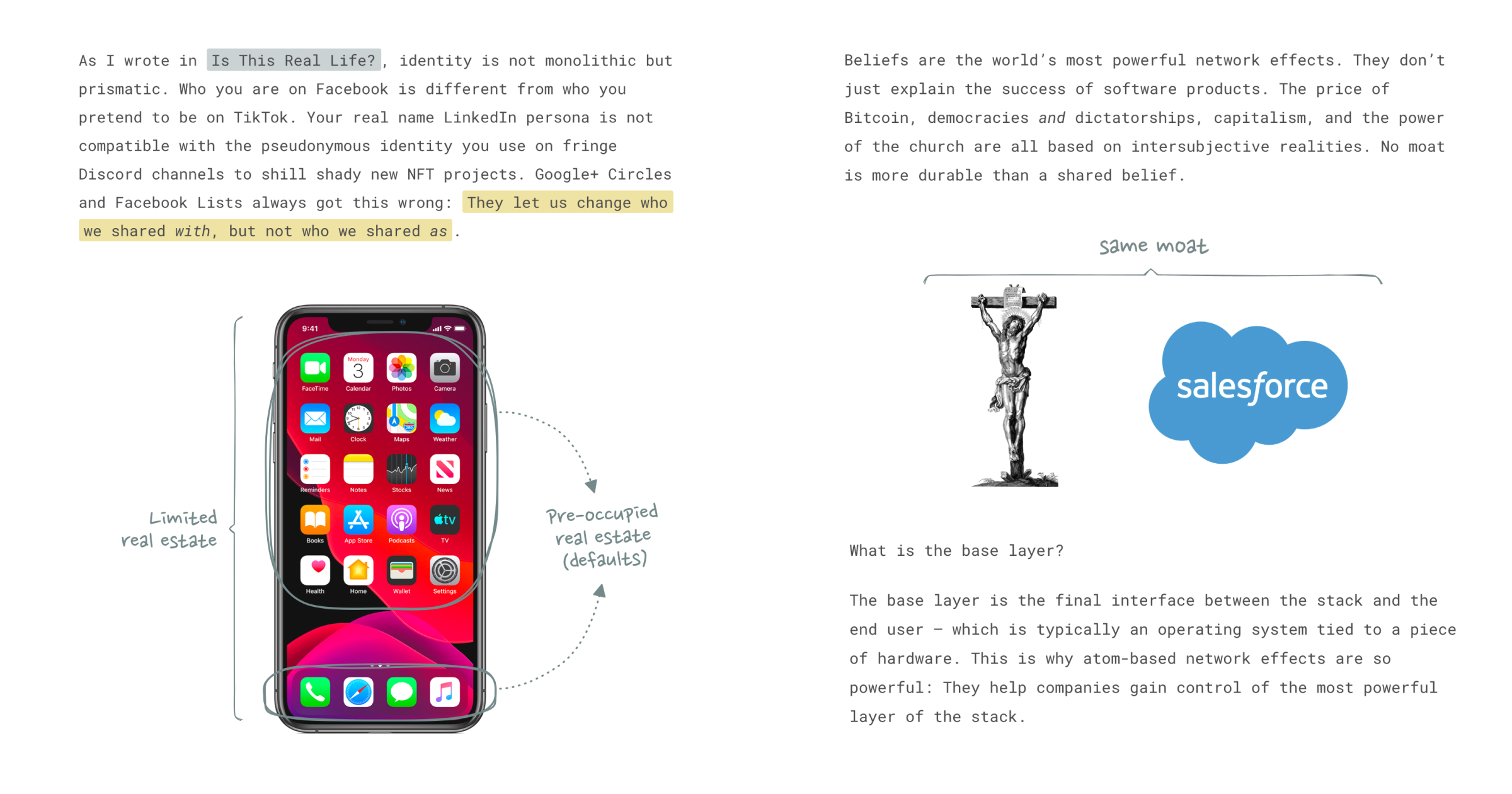In contrast to Google and Apple, Facebook doesn’t own an operating system and, thus, doesn’t enjoy the defensibility of a pre-installed default. But because Facebook is the de-facto online identity layer for so many people, it is almost guaranteed to secure some of that limited pixel real estate on the user’s home screen.

